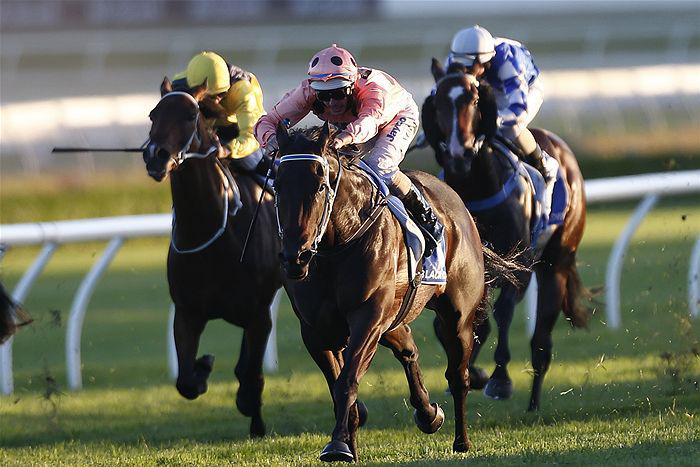How to Select a Champion Racehorse
- Written by NewsServices.com

Training a champion racehorse is a careful and deliberate process that requires patience, dedication, and an understanding of your horse's body mechanics. For this reason, it is essential that you conduct a very strenuous selection process, to ensure you are making a well-placed investment. Horses are truly unique creatures, after all, in both their physiology and the way they learn. They have evolved to be extremely sensitive to movement, acceleration, and vibration to detect any predators lurking nearby. In other words, racehorses are flight animals, and one of the main goals is to teach your horse to override this instinct to run towards the perceived threat (i.e. the finish line). As such, you need a lineage that has this ability, and can be honed to perform. In this article, we will explore 3 key steps on how to select a champion racehorse.
Source from Thoroughbred Bloodstock
Before you purchase a racehorse, make sure that it is of sound physical condition. Naturally, this means checking for injuries and avoiding horses that have been given certain medications, such as Butazolidin (also known as ‘bute’, commonly used as a pain treatment in lame horses), or clenbuterol (a bronchodilator used to treat airway spasms). If you are not sure whether a horse has been given any of these medications, consult with the breeder to ensure that it is safe for you to purchase. It also makes sense to pursue a horse that comes from a strong lineage of Australian thoroughbred bloodstock. You have likely heard the term ‘thoroughbred bloodstock’ in your research, as it refers to the deliberate breeding of high-performing horses by Australian professionals, giving you an indication of the performance of their offspring.
Study Your Australian Thoroughbred Racehorse's Behaviour
Once you have selected a thoroughbred from good, Australian bloodstock, you can watch the way it interacts with other horses in its stable. Is it naturally submissive? Does it constantly rear up, challenging the other horses in the pen? Was there a pecking order established within an hour of arrival at your stables? If so, you are dealing with an alpha horse from the bloodstock. These are the type of thoroughbreds that are difficult to train because they question everything you do and are quick to test your authority. You will want to begin your training process much more quickly with a horse like this because it has already established its dominance and is simply testing the limits of that power. Should this be your selection, contact one of the many Australian professionals in the industry who can handle the alpha type racehorse.
Introduce Your Racehorse to the Jockey
Your horse will need to get used to the presence of its jockey if it is going to run at maximum capacity during a race. The jockey is an important part of the horse's physiology because his or her movements will help its balance to stay on course. If you have hired a professional jockey, introduce them to your racehorse slowly. Let the two get used to each other's scents before putting them together in a closed space. Even if your horse is behaving aggressively towards the jockey during this time, do not intervene. Your thoroughbred is exerting its dominance and establishing the pecking order before a jockey is ever placed on its back. From here, you will be able to gain insight into whether this horse is a right fit for your interests, or whether you should keep looking.





